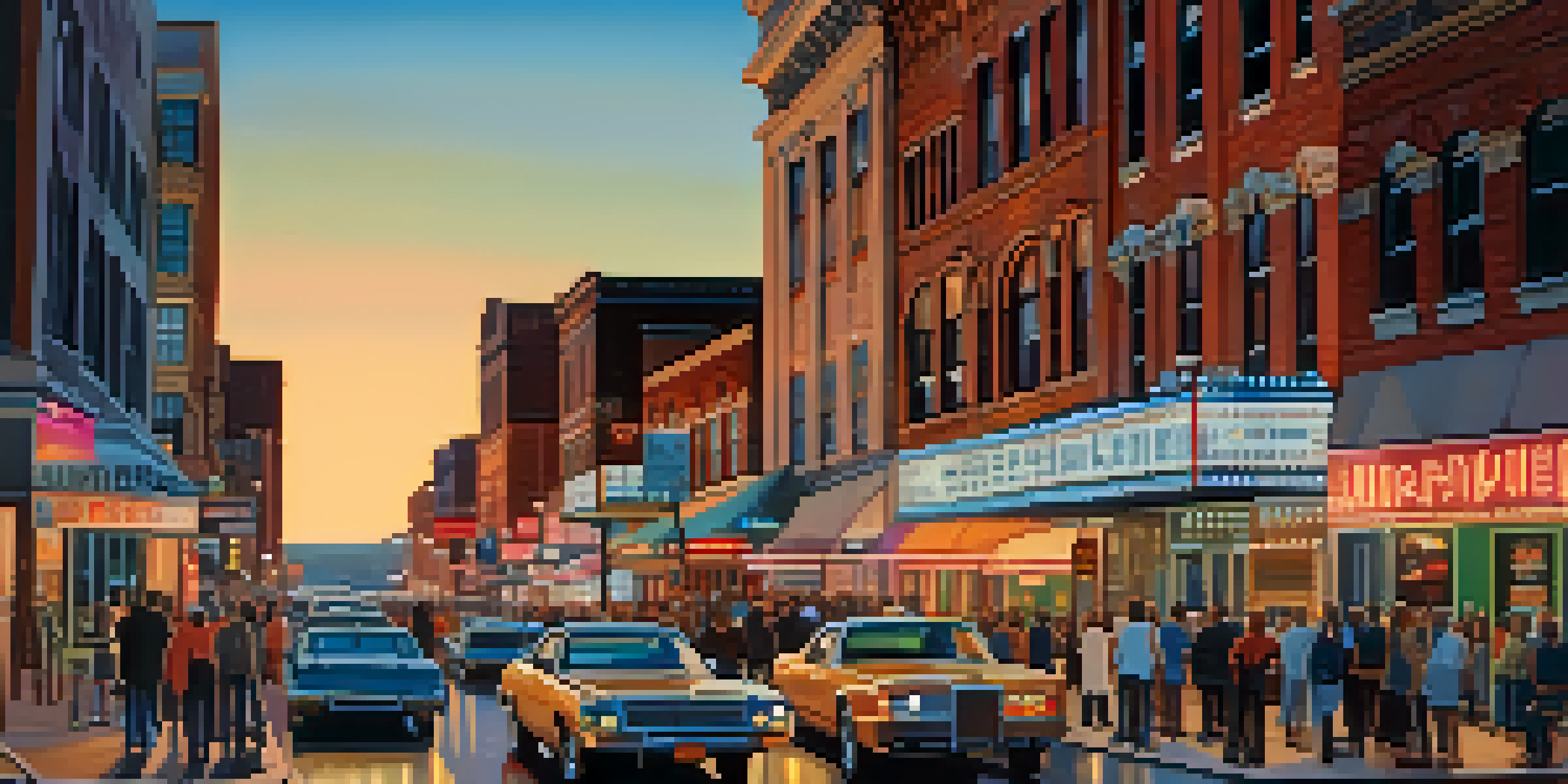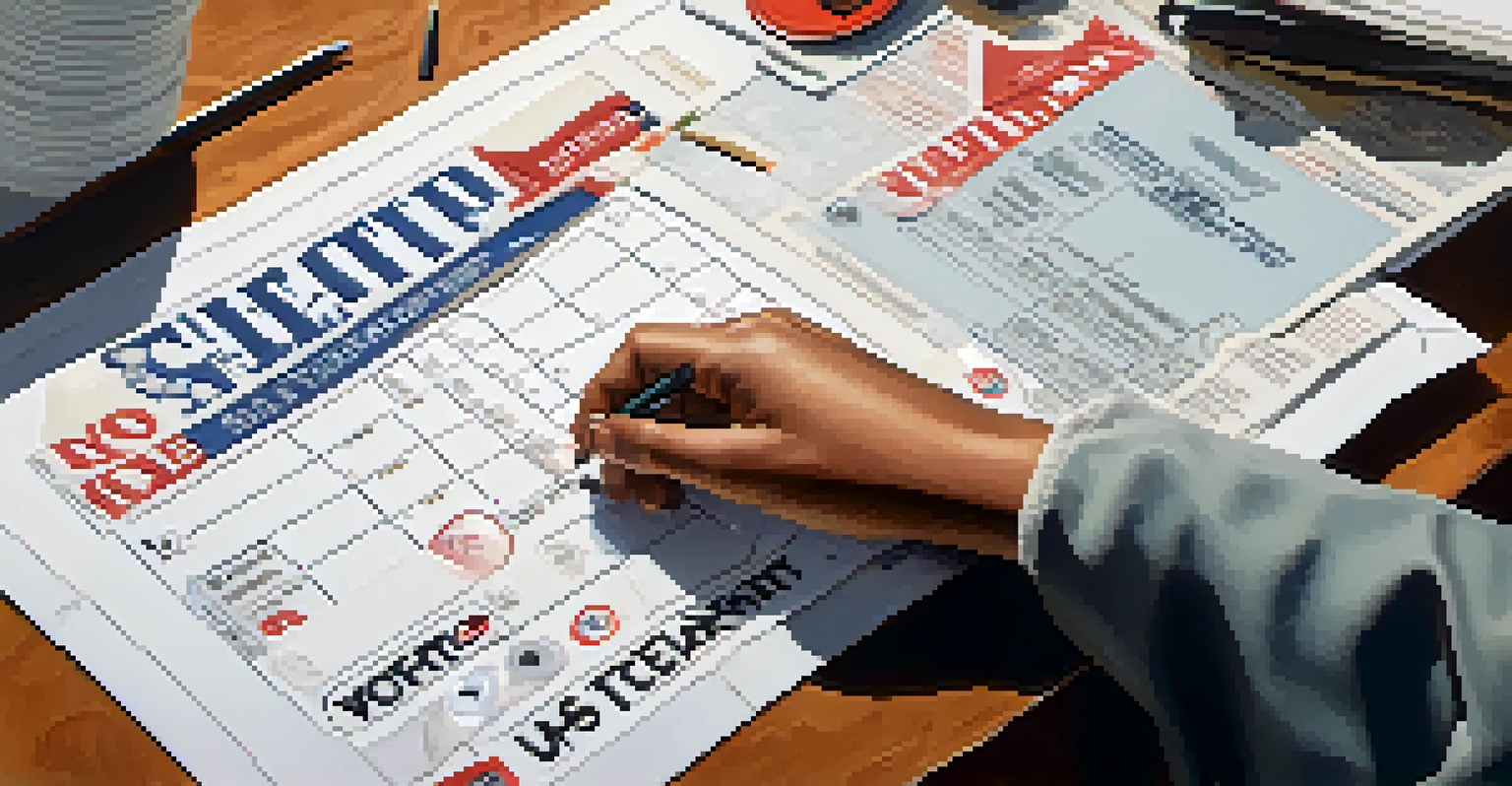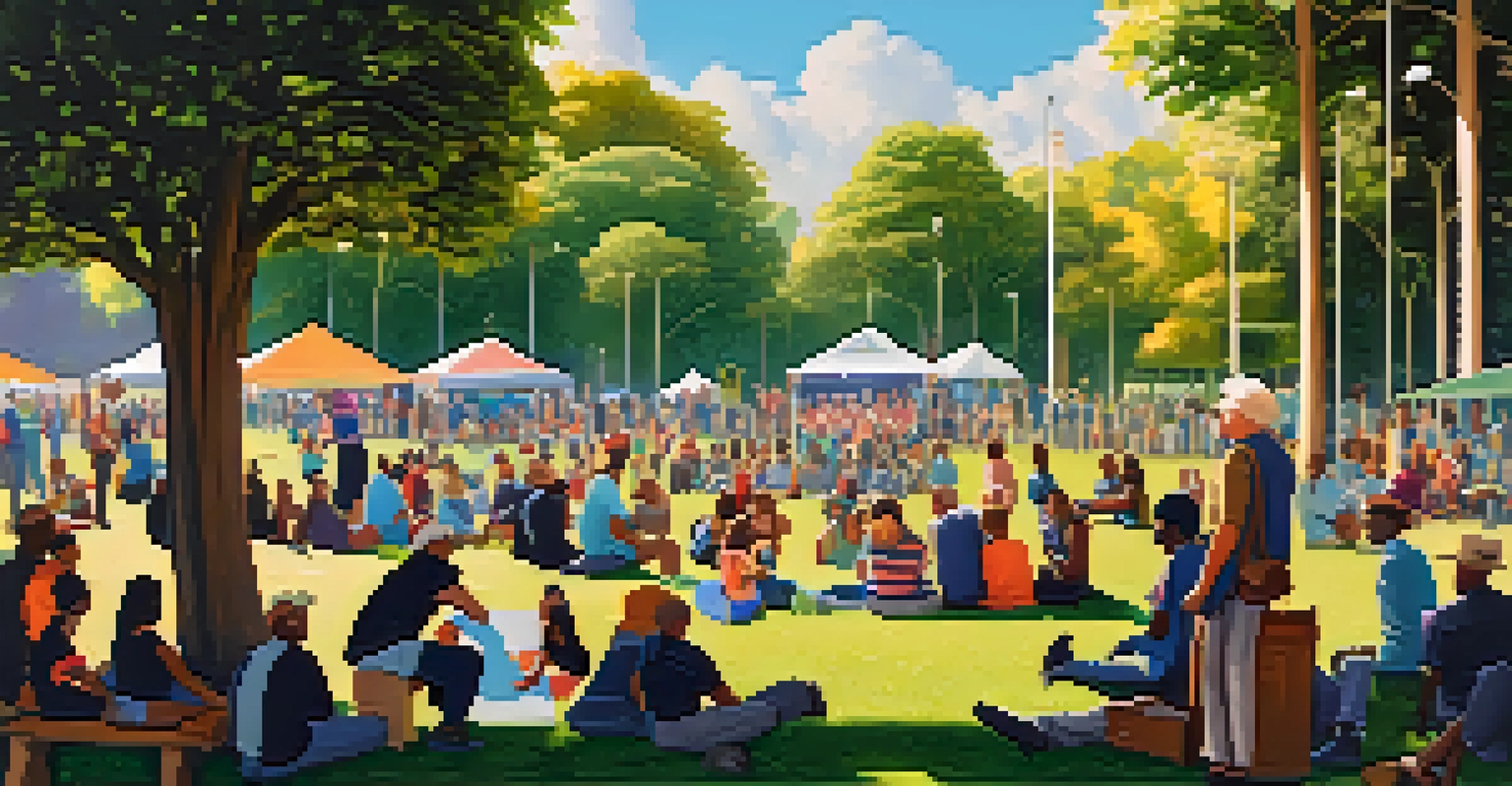Current Trends in Missouri Politics: A 2023 Overview

Shift in Party Dynamics: Republicans vs. Democrats
In 2023, Missouri's political landscape is witnessing a notable shift, particularly between the Republican and Democratic parties. Republicans continue to dominate state offices, but Democrats are making strategic gains in urban areas, reflecting a growing divide. This competition has led to a more vibrant political discourse as both parties work to capture the attention of voters.
In a democracy, the highest office is the office of citizen.
Recent elections have shown an increase in voter turnout, particularly among younger demographics who are leaning more toward progressive values. This shift has compelled Republicans to reassess their strategies and policies to engage these voters more effectively. As both parties adapt, the dynamics are evolving, creating a more competitive environment.
Moreover, the rise of independent candidates has added another layer of complexity to Missouri's political scene. These candidates often draw votes from both major parties, highlighting a desire for alternatives and fresh perspectives. This trend indicates a potential for significant changes in future elections as voters seek representation that aligns more closely with their values.
Key Legislative Issues Dominating the Agenda
Legislation in Missouri during 2023 has revolved around several key issues, most notably education, healthcare, and public safety. Lawmakers are actively debating educational reforms aimed at addressing funding disparities and improving access to quality education. Parents and educators are engaged in the conversation, pushing for changes that better serve students' needs.

Healthcare also remains a critical topic, especially in light of the ongoing impacts of the pandemic. Discussions about Medicaid expansion and mental health services are at the forefront, as advocates push for more comprehensive care options. This focus reflects a growing recognition of the importance of health in overall community well-being.
Shifting Party Dynamics in Missouri
Republicans maintain dominance, but Democrats are gaining traction in urban areas, reflecting a growing divide and increased competition.
Public safety has become increasingly salient, with debates surrounding gun control laws and community policing initiatives. Lawmakers are grappling with how to balance individual rights with the need for community safety, leading to passionate discussions on both sides. As these issues unfold, they are likely to shape Missouri's legislative priorities for years to come.
Impact of the 2023 Gubernatorial Race
The 2023 gubernatorial race in Missouri is shaping up to be a significant event, with candidates from both parties vying for the governor's seat. This election is crucial not only for the state but also as a potential bellwether for national trends. As candidates outline their platforms, issues such as economic recovery, education, and healthcare are taking center stage.
The only thing necessary for the triumph of evil is for good men to do nothing.
Candidates are increasingly utilizing social media and grassroots campaigns to connect with voters, reflecting a shift in how campaigns are run. The emphasis on direct voter engagement is resonating, particularly with younger audiences who value transparency and authenticity. This new approach could redefine traditional campaigning in Missouri.
As the race progresses, debates and town halls are becoming essential for candidates to showcase their policies and connect with constituents. Voters are eager to hear how candidates plan to address pressing issues, making these forums vital for informed decision-making. The outcome of this race will undoubtedly influence Missouri's political landscape for years to come.
Voter Engagement: New Strategies and Challenges
In 2023, voter engagement in Missouri has taken on new forms, driven by both technological advances and community initiatives. Organizations are leveraging social media platforms to mobilize voters, making it easier for individuals to register and participate in elections. This shift reflects a broader trend toward digital activism, particularly among younger voters.
However, challenges remain, particularly in addressing voter apathy and misinformation. Many Missourians feel disconnected from the political process, which can dampen turnout. To combat this, various groups are focusing on education and outreach to inform voters about the importance of their participation.
Key Issues Driving Legislation
Legislation in 2023 focuses on education, healthcare, and public safety, with lawmakers actively debating reforms to address these critical areas.
Additionally, the state has seen an increase in efforts to make voting more accessible, including expanding early voting and mail-in ballot options. These measures aim to remove barriers and encourage broader participation across diverse communities. As these strategies evolve, they hold the potential to reshape the electoral landscape in Missouri.
Social Issues at the Forefront of Political Discourse
Social issues, including racial equity, LGBTQ+ rights, and reproductive rights, are increasingly dominating the political conversation in Missouri. Advocacy groups are actively pushing for reforms that reflect the diverse needs of the population, creating a more inclusive political environment. This focus on social justice resonates particularly with younger voters who prioritize these issues.
Recent protests and community events have brought attention to the need for systemic changes, leading to greater scrutiny of existing policies. Lawmakers are feeling the pressure to respond, as constituents demand meaningful action on these pressing matters. The intersection of social issues and politics is fostering a more engaged electorate.
As Missouri navigates these complex social issues, the impact on upcoming elections cannot be underestimated. Candidates who prioritize inclusivity and equality are likely to gain support, reflecting a shift in voter expectations. This evolving landscape underscores the importance of addressing social justice as a core element of political platforms.
The Role of Local Media in Shaping Politics
Local media in Missouri plays a crucial role in shaping public opinion and informing citizens about political developments. As voters increasingly turn to various news sources for information, the quality and reliability of local journalism have never been more important. Community-focused reporting can help bridge the gap between politicians and constituents.
In 2023, many local outlets are embracing digital platforms to reach broader audiences, adapting to changing media consumption habits. This shift has allowed for greater engagement, enabling citizens to interact with journalists and participate in discussions about local issues. As a result, the relationship between media and politics is becoming increasingly intertwined.
Emerging Trends in Voter Engagement
2023 has seen new strategies for voter engagement, leveraging technology and community initiatives to increase participation despite ongoing challenges.
However, challenges such as misinformation and declining trust in media present obstacles for local news organizations. Efforts to combat fake news and promote journalistic integrity are ongoing, as communities seek reliable information sources. The future of local media will be pivotal in ensuring an informed electorate in Missouri.
Looking Ahead: Future Trends in Missouri Politics
As we move further into 2023, it’s essential to consider the future trends that may shape Missouri politics in the coming years. The growing influence of independent voters and the increasing focus on social issues suggest a potential shift in traditional party alignments. This evolution could lead to more competitive elections and a redefinition of political priorities.
The impact of technology on campaigning and voter engagement is also likely to continue. As candidates leverage new tools to connect with voters, the political landscape may become more dynamic and responsive. This trend could empower previously underrepresented voices, fostering a more inclusive democratic process.

Ultimately, Missouri's political future will depend on how well parties and candidates adapt to these emerging trends. Engaging constituents, addressing critical issues, and promoting transparency will be vital for gaining public trust. As we look ahead, the importance of active civic participation cannot be overstated—it will be the driving force behind the state's political evolution.